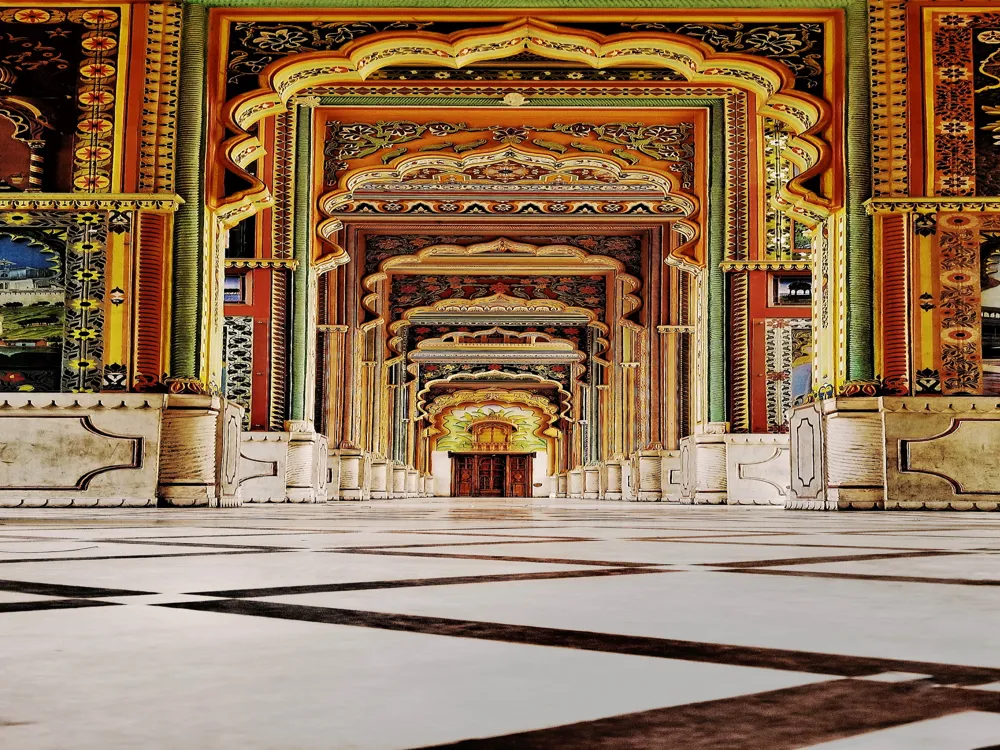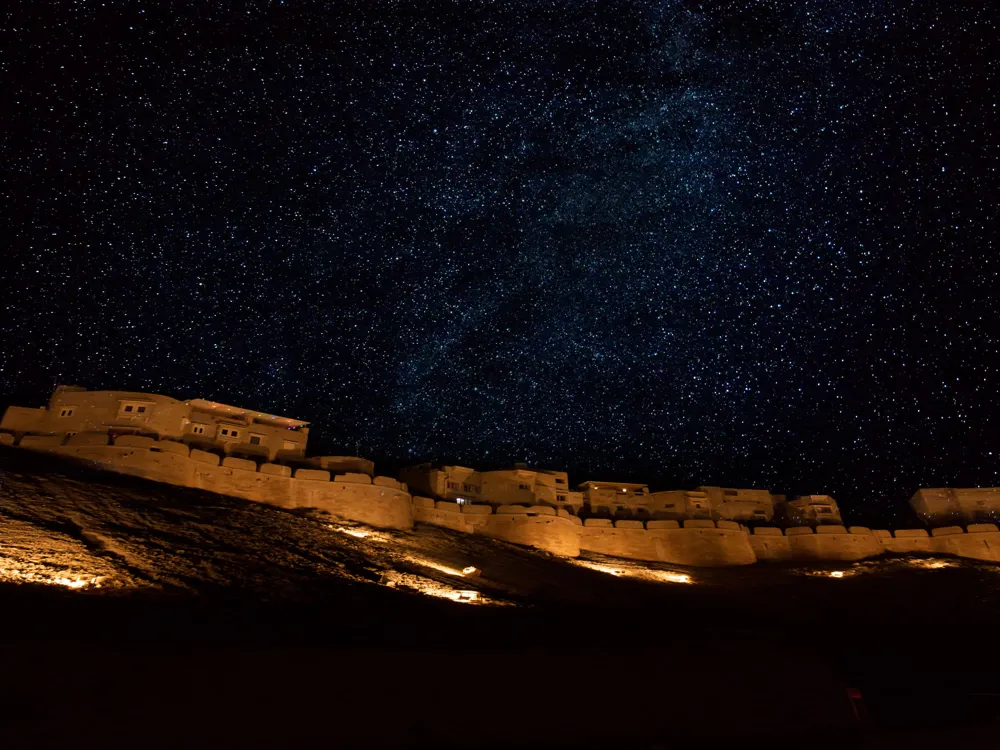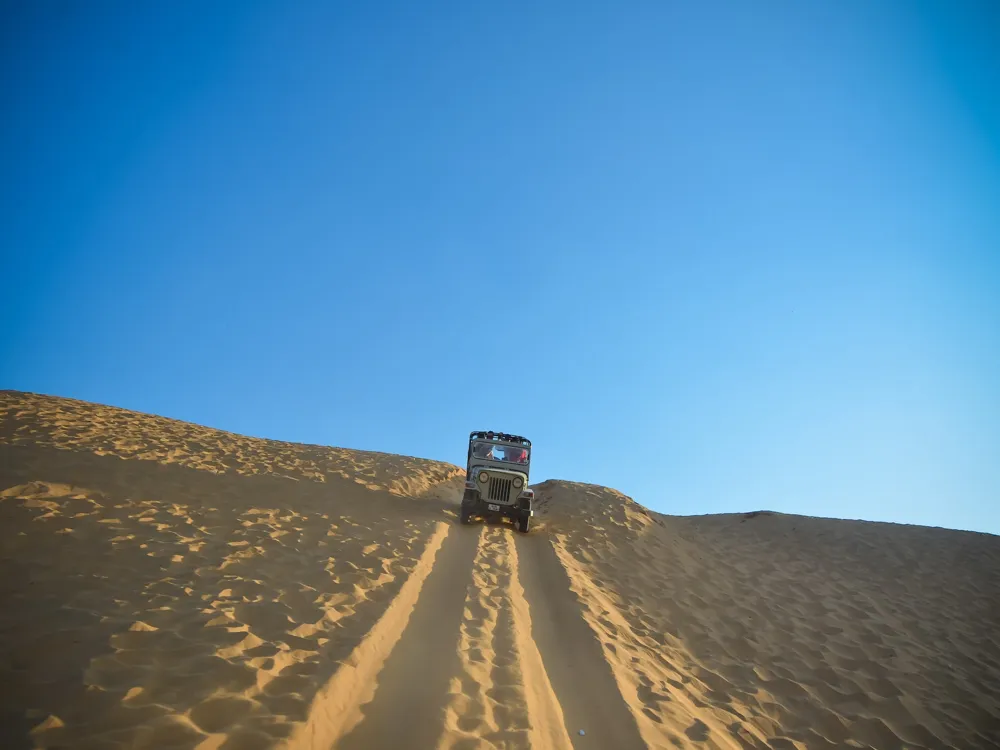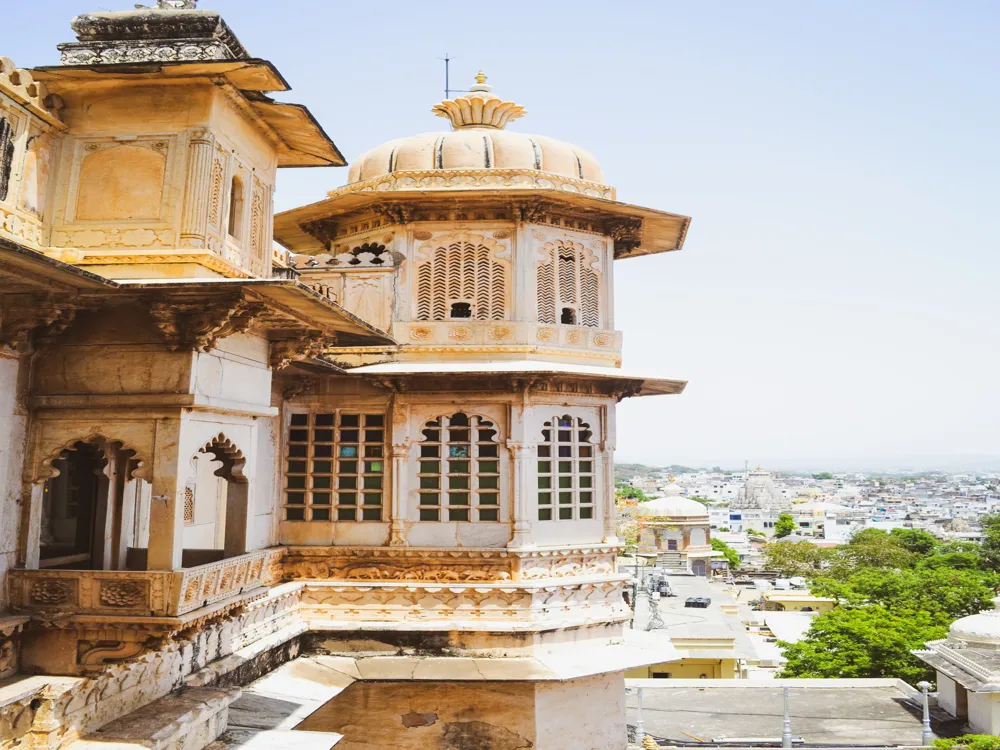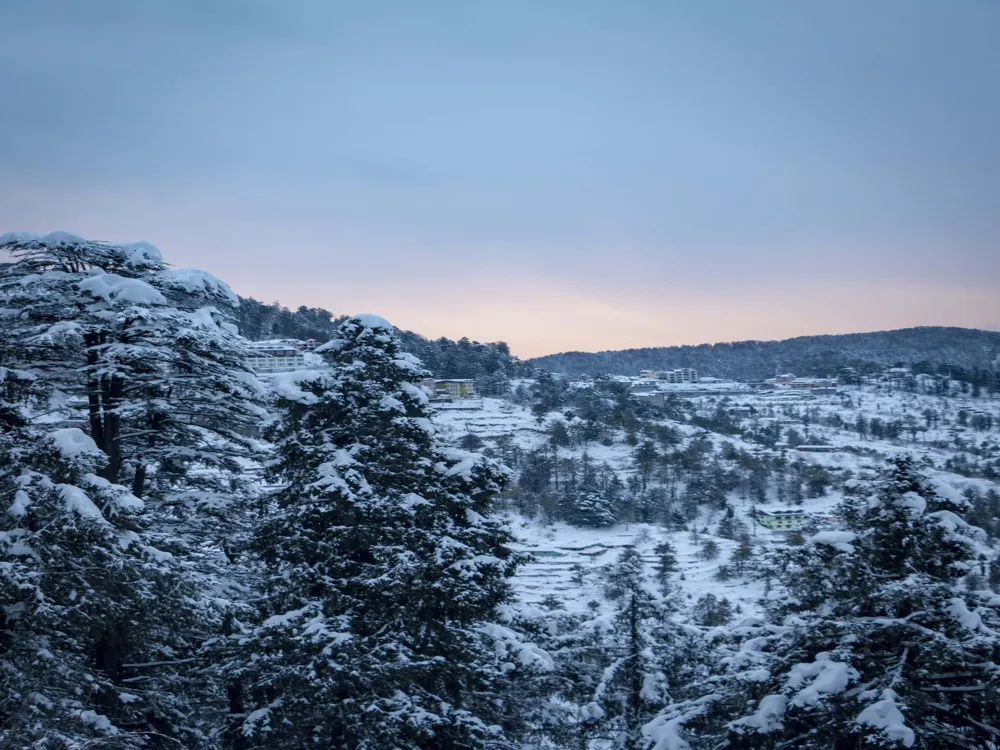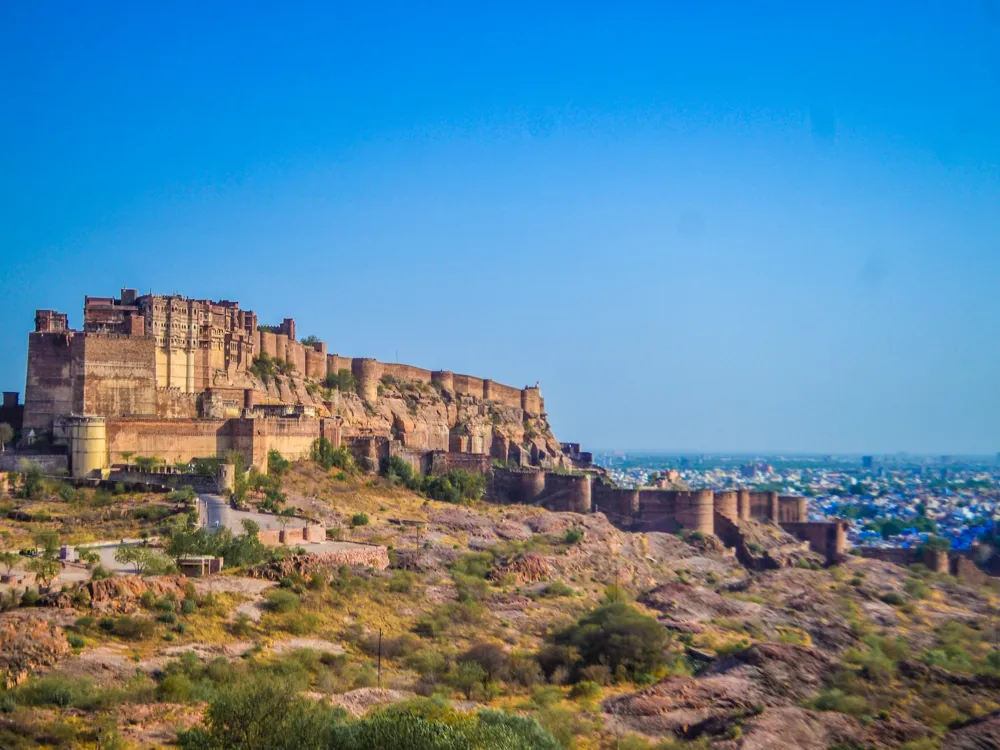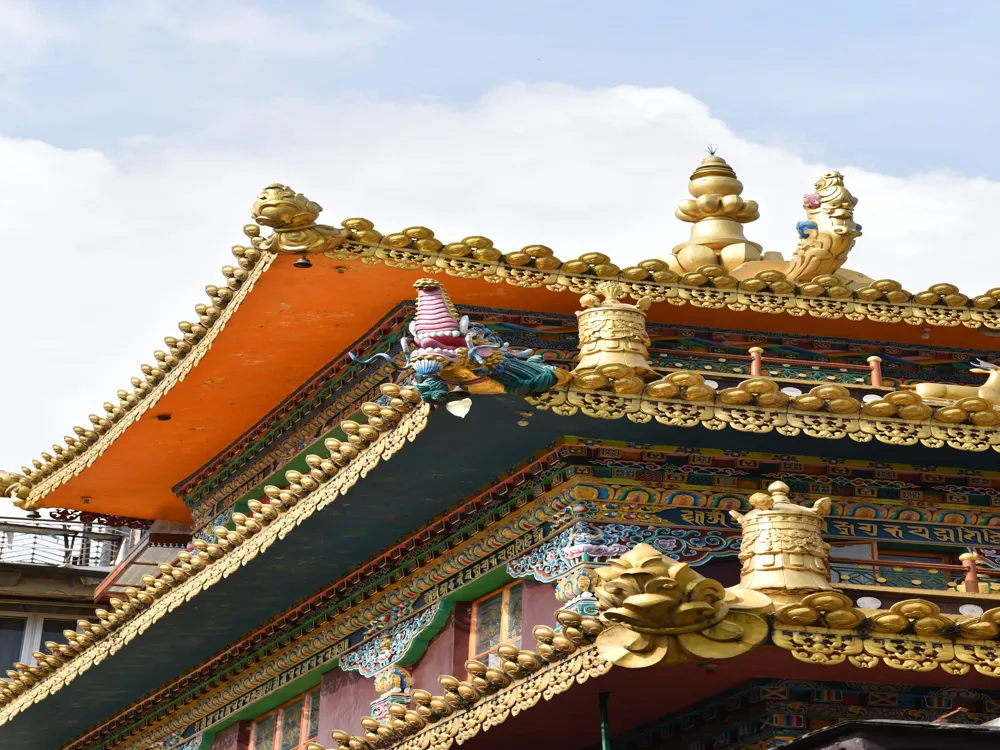The National Research Centre on Camel in Bikaner, Rajasthan, stands as a unique and significant institution dedicated to the research and preservation of camels. Established in 1984, it serves as a central hub for camel research, focusing on their breeding, health, and productivity. The centre spans over 2000 acres of semi-arid land, offering an ideal environment for these resilient creatures. Known for its dedication to the conservation of camel species, particularly the indigenous breeds of India, the centre also plays a crucial role in promoting the economic and ecological importance of camels to local communities and beyond. Camels, often referred to as the 'Ship of the Desert,' are integral to the lifestyle and culture in Rajasthan. Recognizing their significance, the National Research Centre on Camel aims to enhance the understanding of these animals through scientific research and studies. The centre conducts various programs focusing on the genetic improvement of camels, their nutritional needs, and health management. Additionally, it works towards the development of camel-based products like milk, wool, and leather, which have significant socio-economic potential. Apart from its research endeavors, the centre has emerged as a popular tourist attraction, drawing visitors from around the world. It offers a unique experience to explore the world of camels, understand their habitat, and witness the scientific processes involved in their upkeep and breeding. The centre also has a museum and a camel milk parlor, which are major attractions for visitors. Educational tours and camel rides add to the experiential aspect of the centre, making it a must-visit destination for those interested in wildlife and conservation. The architecture of the National Research Centre on Camel in Bikaner is a blend of traditional and modern design elements, reflecting the cultural heritage of Rajasthan while accommodating the needs of contemporary research facilities. The main buildings of the centre are designed with a keen sense of aesthetics, merging with the arid landscape of the region. The use of local materials and architectural styles is evident, creating a sense of harmony with the environment. One of the striking features of the centre's architecture is the use of Jharokhas (overhanging enclosed balconies), Jaalis (latticed screens), and Chhatris (dome-shaped pavilions), which are characteristic of Rajasthani architecture. These elements not only enhance the visual appeal of the buildings but also serve functional purposes, such as providing shade and facilitating ventilation in the hot desert climate. The layout of the centre is strategically planned to accommodate various functional areas, including research laboratories, breeding areas, feeding grounds, and veterinary care facilities. The integration of open spaces and green areas within the premises creates a conducive environment for both the camels and the researchers. The centre's museum, with its distinctive design, serves as an educational resource, showcasing the history, culture, and science associated with camels. Before visiting the National Research Centre on Camel, it's advisable to check the visiting hours and any special guidelines or events scheduled for the day of your visit. Planning ahead ensures a more organized and fulfilling experience. Given the desert climate of Bikaner, visitors should wear comfortable, light clothing and carry hats or umbrellas for sun protection. Sturdy footwear is recommended for walking around the expansive centre grounds. Carry enough water to stay hydrated, as exploring the centre can be taxing in the hot and dry conditions typical of the region. The National Research Centre on Camel is located about 8 km from the heart of Bikaner city. It is easily accessible by various means of transportation. By Air: The nearest airport is Jodhpur Airport, from where you can hire a taxi or take a bus to Bikaner. By Rail: Bikaner is well-connected by train to major cities in India. From Bikaner railway station, the centre is a short drive away. By Road: Bikaner has a good network of roads connecting it to other cities in Rajasthan and beyond. Buses, taxis, and private vehicles are viable options to reach the centre. Read More:Overview of National Research Centre On Camel, Bikaner, Rajasthan
Architecture of National Research Centre On Camel
Tips When Visiting National Research Centre On Camel
Plan Your Visit
Dress Appropriately
Stay Hydrated
How To Reach National Research Centre On Camel
National Research Centre On Camel
Bikaner
Rajasthan
₹ 15,250 onwards
View bikaner Packages
Weather :
Label : Must Visit
Tags : Museum
Time Required : 3-4 hours
Planning a Trip? Ask Your Question
Bikaner Travel Packages
View All Packages For Bikaner
Top Hotel Collections for Bikaner

Private Pool

Luxury Hotels

5-Star Hotels

Pet Friendly
Top Hotels Near Bikaner
Other Top Ranking Places In Bikaner
View All Places To Visit In bikaner
View bikaner Packages
Weather :
Label : Must Visit
Tags : Museum
Time Required : 3-4 hours
Planning a Trip? Ask Your Question
Bikaner Travel Packages
View All Packages For Bikaner
Top Hotel Collections for Bikaner

Private Pool

Luxury Hotels

5-Star Hotels

Pet Friendly












